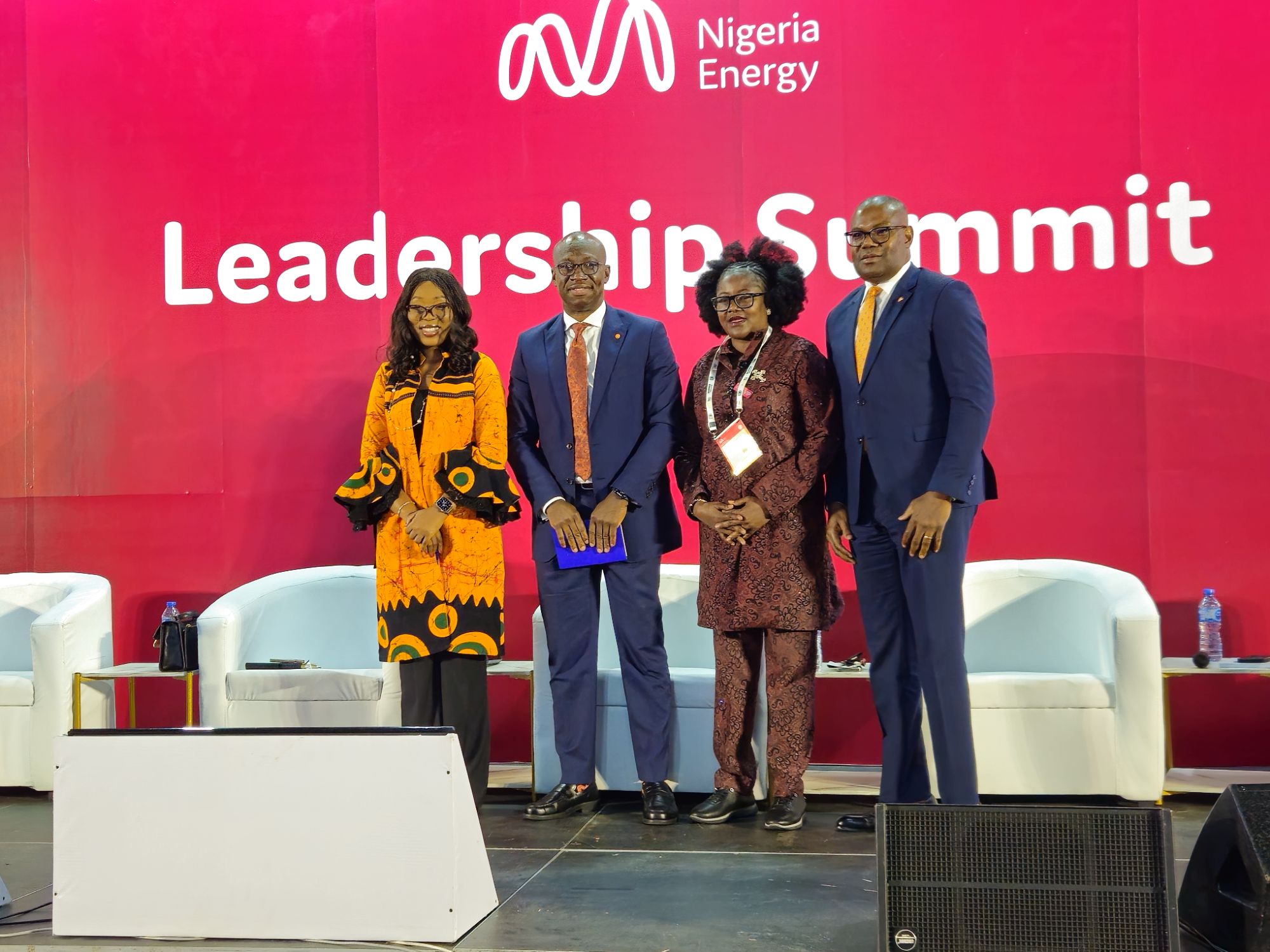By Chris Agabi
The Transcorp Group has reaffirmed its leadership in shaping the future of Nigeria’s energy sector, with two of its key executives driving the conversation on building infrastructure for gas-to-power projects at the recently concluded 2024 Nigeria Energy Summit.
Mr. Vincent Ozoude, MD/CEO of Transafam Power Limited, and Christopher Ezeafulukwe, MD/CEO of Transcorp Energy Limited, were at the forefront of discussions aimed at tackling the critical challenges and opportunities for Nigeria’s gas sector, alongside Dr. Joy Ogaji, MD/CEO of the Association of Power Generation Companies (APGC).
The session was moderated by Gbemisola Abiola-Ige, Head of Risk Management & Portfolio Optimization at Nigeria LNG Limited.

The summit highlighted the growing importance of gas in Nigeria’s energy mix and the urgent need to address infrastructure gaps, funding issues, and security concerns to unlock the country’s gas-to-power potential fully. The panel focused on how strategic investments and partnerships, driven by both public and private sectors, can pave the way for a more robust energy future.
Addressing Key Risks: Funding, Security, and Market Volatility
During the panel, Christopher Ezeafulukwe emphasized that Nigeria must find homegrown solutions to secure funding for gas-to-power projects in an era where fossil fuel investments are declining globally. He highlighted the concept of Africapitalism, which calls on African nations to take charge of their own development through partnerships that prioritize local growth and long-term sustainability. “We cannot rely solely on external funding. Africa must lead in building its infrastructure by leveraging both the private and public sectors,” Ezeafulukwe said.
Vincent Ozoude highlighted the persistent security risks in Nigeria’s oil and gas regions, noting that traditional methods of policing infrastructure are no longer sufficient. He advocated for a more strategic, intelligence-driven approach that includes local operators in the solution, thus formalizing and leveraging their skills to safeguard critical infrastructure.
Both leaders also pointed out the market risks plaguing Nigeria’s gas-to-power sector, particularly inefficiencies in the electricity market and the slow pace of industrialization. They stressed the need for the power sector to transition to bilateral contracts, which would stabilize demand and unlock growth potential for the gas sector.
Gas: The Bridge to Nigeria’s Energy Future
A recurring theme during the session was the crucial role that gas plays in Nigeria’s path towards energy sufficiency. Ezeafulukwe reminded attendees that gas currently powers 70% of the national grid, making it the backbone of Nigeria’s energy supply. He noted that even as renewables gain traction, gas-fired plants will remain essential for maintaining stability in the country’s power generation. With Nigeria ranking third in Africa in terms of gas reserves, the country has a unique opportunity to harness this resource to fuel its economic growth and industrial development.
Vincent Ozoude added that addressing infrastructure gaps is crucial to realizing this potential. He specifically pointed to the delayed OB3 pipeline, designed to link Nigeria’s eastern and western gas markets, as a key project that must be prioritized. “We have the reserves, but we lack the infrastructure to connect gas-rich areas to demand centres. This inefficiency is holding us back from achieving energy sufficiency,” Ozoude explained.
A Call for Policy Re-evaluation and Immediate Action
The discussion ended with a call to revisit Nigeria’s Gas Master Plan and the Decade of Gas initiative. While these policies were developed with the right objectives, the panel agreed that they require reevaluation to reflect current realities. The leaders emphasized that addressing infrastructure gaps, improving security measures, and adopting modern market frameworks are critical to positioning Nigeria as a true gas powerhouse.
For Transcorp Group, the message is clear: gas-to-power is more than an energy solution—it is a driver of economic transformation. By investing in strategic infrastructure and partnerships, the Group is committed to playing a central role in transforming Nigeria’s energy landscape and contributing to long-term value creation for the country and its people.
As Transcorp Energy and Transafam Power, subsidiaries of Transcorp Group, continue to lead the charge, their efforts will ensure that Nigeria maximizes its gas potential, fueling industrial growth, job creation, and sustainable development.












